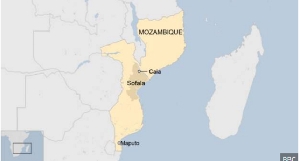Regional News of Wednesday, 23 May 2012
Source: GNA`
GIBA protests against framework for Digital Terrestrial Television network
The Ghana Independent Broadcasters Association (GIBA) has protested against the framework and steps being taken by the Ministry of Communication on Ghana’s Digital Terrestrial Television (DTT) Network roll out.
A statement issued by members of the Executive Council of the Association in Accra and copied to Ghana News Agency on Tuesday, reiterated the position of GIBA that if the digital migration of television broadcasting continued along the path it was currently going, it would have the ultimate effect of destroying independent broadcasting in Ghana and kill the businesses of existing local broadcasters.
It said the Ministry had reneged on its earlier agreement of having a single signal distributor established through a Public, Private Partnership (PPP) between Ghana Broadcasting Corporation (GBC) and GIBA.
The statement said without the PPP in place, GIBA was concerned about the real possibility that the network owner/operator could exclude some broadcasters either by barring them from the use of the platform or the imposition of onerous fees.
"GIBA is baffled about contract arrangements being currently finalised with Star Times of China to roll out the DTT Network in Ghana when right from the onset, and through the entire tender process, the total project cost was based on the assessments of existing structures belonging to both GIBA and GBC."
The statement raised concerns about the final cost of the DTT roll-out in the proposed contract of $118,760,000 to Star Times of China.
Based on international case studies and similar type installations in other countries, GIBA estimates Ghana’s 58 proposed DTT transmission sites to cost not more than $58,000,000 to fund. More so, the Association is concerned that the pre-financing condition in the tender documentation is being waived to enable Star Times undertake the project with a loan acquired by the Government on concessionary terms from China.
GIBA said the present arrangements were unfavourable to local broadcasters in particular, who had invested millions of dollars in infrastructure and had shown over the years that they had the requisite capacity within the broadcasting industry.
"It is the position of GIBA that the digital migration process, as is currently going, has the tendency to marginalise its members and give undue advantage to one group especially a foreign entity.
The Association is concerned that this danger is particularly accentuated by awarding the contract for the network infrastructure/platform to a business entity Star Times of China, which is also a broadcaster and already in competition with Broadcasters in Ghana. Again, with the present arrangements, viewers stand the risk of being subjected to the high monopolistic prices of a platform operator/broadcaster."
It noted that letters it wrote to the Ministry of Communication, raising concerns about several anomalies with the view that they would be corrected were utterly disregarded.
The statement called on the Ministry to take steps to address the issues raised, saying GIBA would not sit unconcerned as it was being excluded from the development and control of the crucial infrastructure on which television transmission in Ghana would run.
"GIBA is willing to dialogue with all digital stakeholders and hope that with all sincerity, everyone will be committed to delivering Ghana’s migration dispassionately."**










